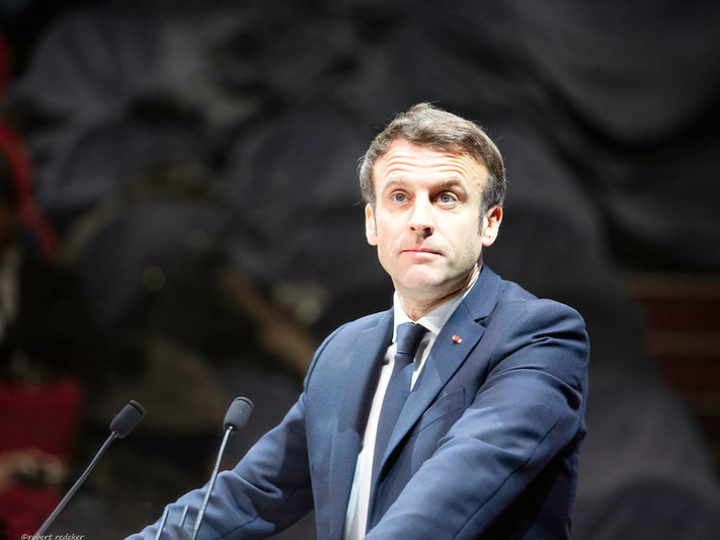Why did nearly six years have to pass? Why did hundreds of thousands of people in Syria have to die and many millions have to flee? Why did it take so long for Europe to feel even a little disgust at the tragedy of Aleppo, one of the biggest worldwide humanitarian catastrophes of recent years?

Any discussion about events in Syria runs the risk of becoming stifled. People argue that the situation in the region is too complex; that there are too many players with incomprehensible interests. Of course, much remains hidden. But the fact that war crimes are taking place, that more than 90% of the deaths of doctors, journalists and civilians are the result of actions of the Syrian regime and its allies − this is not propaganda.
by
Franziska Brantner*
Why, for months, did the European Union only keep ‘under review’ the idea of using air drops to supply aid to those in the Syrian regions being besieged by government forces – a measure long demanded by the most senior United Nations officials?
Dropping aid into hard-to-reach regions is technically feasible if the political will exists. The Greens in the German Bundestag, of which I am a member, introduced a proposal to this effect in Parliament last autumn.
The proposal was rejected by a majority of MPs, even though in just a few months before even then Germany’s foreign minister, Social Democrat Frank-Walter Steinmeier, had mentioned these airdrops as an option should ceasefires not hold. The weapons did not stay silent – but nothing happened.
Nothing happened, despite images of horror and destruction and regular testimonies of war crimes delivered daily into our homes since 2011.
Nothing happened, despite the Syrian tragedy occurring right on Europe’s doorstep, despite our continent – not least Germany, which has accepted more than a million refugees since 2011 – being immediately affected by the results of flight and displacement.
Shortly before rebel-held east Aleppo fell in December 2016, prominent authors and artists called for a demonstration in front of the Russian Embassy in Berlin. Several hundred people or more attended.
But where was the voice of the peace movement, which in the 1980s could mobilise hundreds of thousands of people in Germany?
In the face of the atrocities which befell Homs, Daraya and Aleppo the peace movement kept quiet, or they surrendered to those who castigated the United States as Middle East imperialists and praised Russia as the dove of peace. And this despite the use by Moscow of questionable opinion leaders, supposed experts or allegedly independent journalists for propaganda campaigns in Germany and other European states.
The EU has failed to present a united front against Putin and Russia, with too many vested interests and equivocal attitudes towards the Russian government. This phenomenon has shown itself more clearly than ever since the annexation of Crimea and the beginning of the Syrian war. Most EU governments’ relations with Russia are strained enough with the tensions in Ukraine; they do not want to exacerbate the conflict with Moscow.
Berlin too, which has taken a relatively hard line, could barely afford to ramp up the pressure as existing sanctions against Russia are already a thorn in the side of parts of the German economy. And there are heads of government like Hungary’s Viktor Orban, who is a declared fan of Russian President Vladimir Putin.
Without Western military engagement since the Russian military intervention, the possibilities for influence and action have been restricted. Through the use of poison gas and the dropping of barrel bombs, the ‘red lines’ that US president Barack Obama drew in 2012 and 2013 were crossed, but he pulled back from forceful action, allowing Putin to become a critical player in the region. When the American presidential primary and general election campaigns began the idea of a stronger military engagement in Syria had no chance.
And there is the issue with Turkey: an increasingly questionable partner under its increasingly authoritarian President, Recep Tayyip Erdogan, on whom Europe became dependent during the refugee crisis. Turkey, due to its hardline actions against the Kurds in northern Syria, has indirectly supported the self-styled ‘Islamic State’, or Daesh, for years.
Any discussion about events in Syria runs the risk of becoming stifled. People argue that the situation in the region is too complex; that there are too many players with incomprehensible interests. Of course, much remains hidden. But the fact that war crimes are taking place, that more than 90% of the deaths of doctors, journalists and civilians are the result of actions of the Syrian regime and its allies − this is not propaganda.
Brave journalists and Syrian human rights activists, as well as doctors and volunteers, document the events blow by blow, and take account of all the victims.
Western journalists have taken great risks to deliver solid reporting from the heart of the conflict. Should all these efforts, and this commitment, remain without impact?
They speak up. Europe should too.
*Foreign policy spokesperson of the Green group in the German Bundestag and European Young Leader


